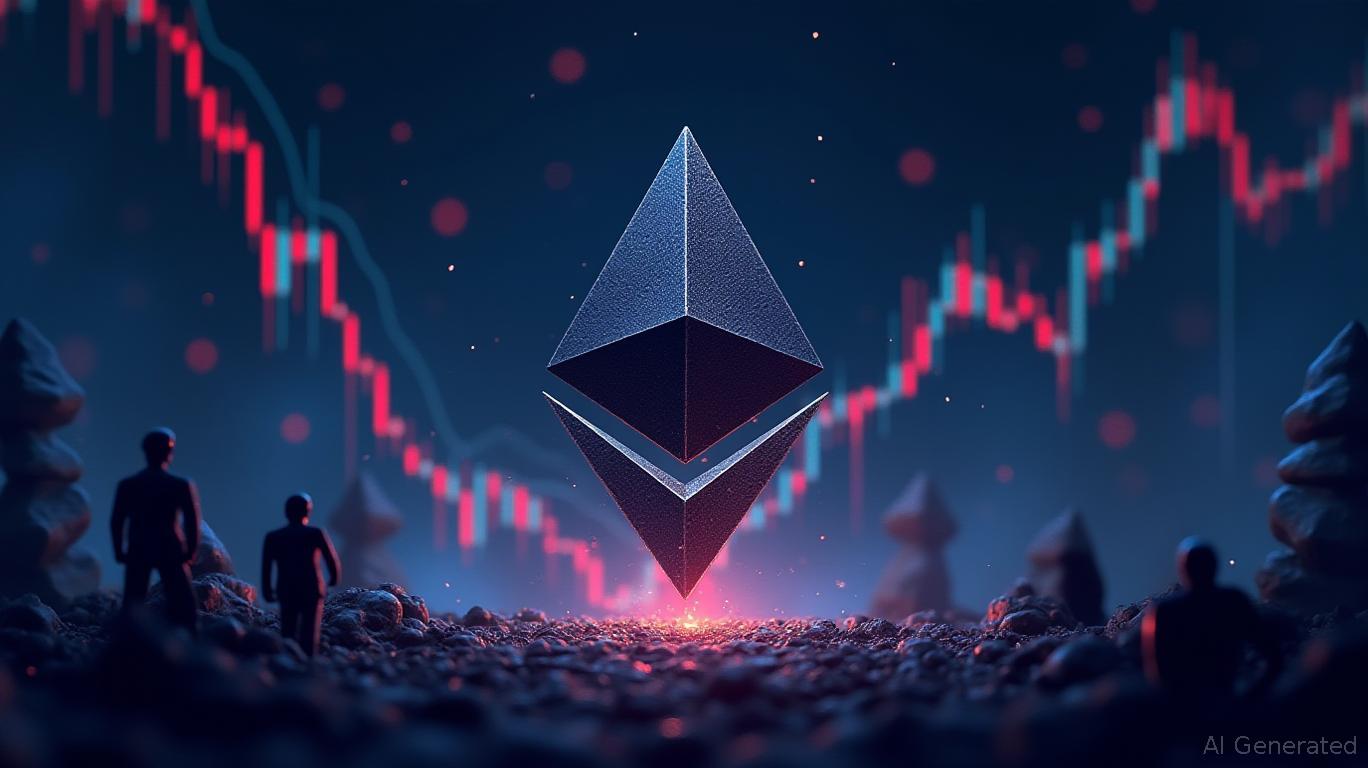India's judiciary declares cryptocurrency as lawful property in a historic decision
- India's Madras High Court ruled cryptocurrency as legal property, blocking WazirX from redistributing a user's frozen XRP during its post-hack restructuring. - The court emphasized crypto's "intangible property" status, requiring a ₹9.56 lakh bank guarantee to protect the investor's holdings until arbitration concludes. - The decision challenges offshore restructuring plans, affirming Indian jurisdiction for domestic investments and aligning with global precedents like New Zealand's Cryptopia ruling. - I
The Madras High Court in India has issued a significant judgment, officially recognizing cryptocurrency as a type of property under Indian law. This decision prevents WazirX from reallocating a user's frozen
The dispute involves Rhutikumari, an investor from Chennai who owned 3,532 XRP tokens on WazirX, which were not impacted by the platform’s $230 million security breach in July 2024. After the hack, WazirX froze accounts and began a restructuring plan based in Singapore, suggesting a "socialized loss" method to redistribute assets. The court, however, dismissed this proposal, stating that cryptocurrency qualifies as "property that can be possessed, enjoyed, and held in trust," according to Coinpedia, and ordered WazirX to secure Rhutikumari’s assets with a ₹9.56 lakh ($11,500) bank guarantee until arbitration is resolved.

This verdict challenges WazirX’s efforts to subject Indian users to its overseas restructuring, which had received approval from Singapore’s High Court on October 13, as noted by
WazirX, which reopened trading on October 24 after being inactive for 16 months, has received mixed feedback. Some users appreciated the gradual reopening and the introduction of zero-fee trading for USDT/INR pairs, while others voiced frustration over ongoing withdrawal restrictions. The exchange’s restructuring plan aims to return 85% of user funds by July 2024, with the rest to be paid out over three years, according to the
The court also criticized WazirX’s "socialized loss" approach, describing it as "unacceptable and outside the contractual agreement." This echoes a recent decision by the Bombay High Court, which blocked similar asset redistribution by Bitcipher Labs. Legal professionals believe the Madras High Court’s ruling reinforces the fiduciary responsibilities of exchanges and highlights the judiciary’s crucial role in protecting crypto rights amid regulatory uncertainty in India.
This judgment establishes a new legal standard for India’s crypto industry, treating digital currencies as property and potentially shaping future bankruptcy proceedings and investor protections. Sudhakar Lakshmanaraja from Digital South Trust commented that the decision "bolsters consumer rights and lays the groundwork for clearer regulations," as cited by
As WazirX moves forward with its relaunch, the Madras High Court’s involvement highlights the increasing legal and regulatory challenges facing India’s crypto sector. With many users still waiting for their funds, the case underscores the ongoing conflict between international restructuring efforts and domestic legal protections—a dispute now firmly rooted in India’s courts.
Disclaimer: The content of this article solely reflects the author's opinion and does not represent the platform in any capacity. This article is not intended to serve as a reference for making investment decisions.
You may also like
Solana News Update: Institutions Wager on Altcoins’ 100x Growth as CPI Sparks Risk-On Market Mood
- Altcoin prices may surge as investors shift focus to U.S. CPI data and risk-on sentiment, with Solana (SOL) and Ripple (XRP) highlighted as potential 100x plays. - Coinbase's $375M Echo acquisition and Pave Bank's $39M Series A funding underscore institutional confidence in blockchain infrastructure despite market volatility. - Solana's $195 rebound, 55% transaction volume surge, and $400M staking ETF inflows position it as a high-growth altcoin amid rising institutional demand. - Fed rate cut expectatio

Asia's rapid growth in stablecoins sets technological advancement in contrast with regulatory prudence
- Kaia DLT Foundation drives Asia's multi-currency stablecoin growth amid $46T 2025 global transaction volumes, outpacing traditional payment giants. - Major players like Western Union (Solana), PayPal (Paxos) and Visa (Stellar) expand stablecoin offerings, with Visa reporting $2.5B annualized volumes in Q4 2025. - China's PBOC warns of stablecoin risks to monetary sovereignty, while Hong Kong positions itself as a digital asset hub through regulated initiatives like Red Date's cross-border solutions. - Re

Bitcoin News Update: Metaplanet Initiates Share Repurchase to Narrow Disparity Between Stock Price and Bitcoin Holdings
- Metaplanet Inc. will hold a shareholder meeting on Dec 22, 2025, to address its mNAV ratio drop below 1.0x. - The company authorized a ¥75B share buyback (13.13% of shares) funded by a $500M loan secured against 30,823 BTC ($3.5B). - New capital policies prioritize buybacks when shares trade below intrinsic value and issue perpetual preferred shares for BTC purchases. - Shares rose 2.3% after the announcement, following a 74% decline from June highs, as the firm aims to accumulate 210,000 BTC by 2027.

Ethereum Updates Today: Ethereum Holds $3,930 as Key Support Following Drop Below $4,000
- Ethereum fell below $4,000 on Oct. 28, marking a 3.59% drop and ending a five-day rally, its largest decline since October 2025. - Traders monitor $3,930 support, with breakdowns risking a test of $3,870–$3,880, while $3,945–$4,000 remains a key technical battleground. - Long-term optimism persists as Ethereum’s CD 5 Index rebounds, but near-term stability hinges on overcoming resistance near $4,000. - Upcoming Fusaka upgrade aims to boost smart contract efficiency, potentially driving ETH demand and alt
